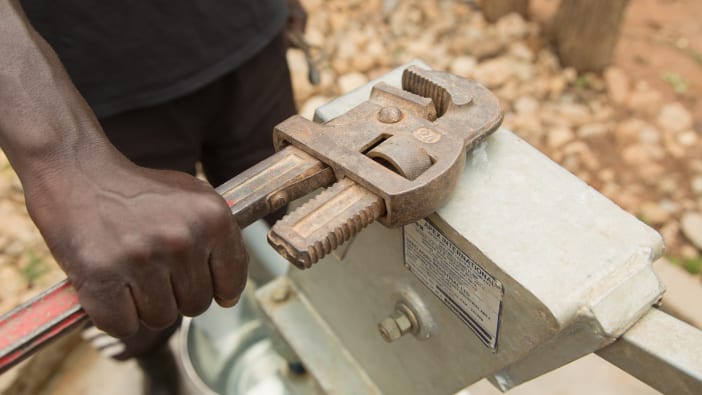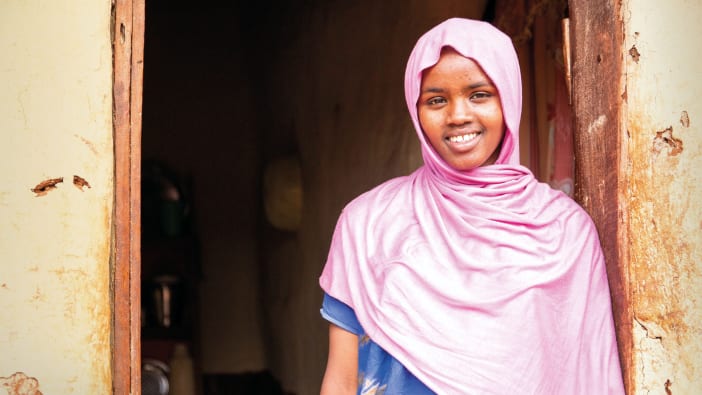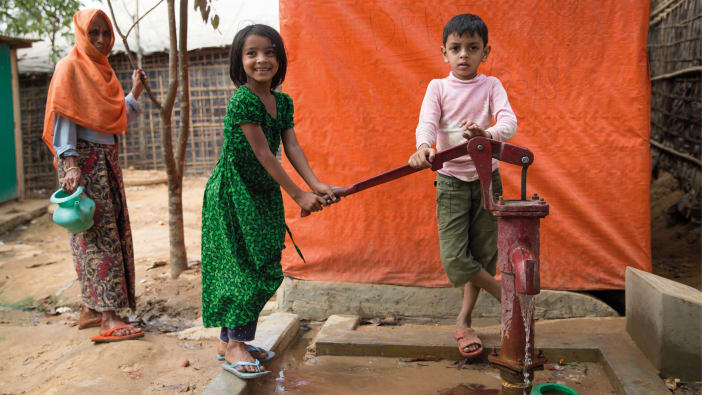by Abdou Yaba Diop.
Drought and lack of water have always been frequent in rural Africa. At the beginning of the 1980s governments and NGOs built various facilities – such as dams, wells and piped water systems – to try to overcome this problem. However, several years on, many of them are no longer working, often because of bad management.
In my position as secretary of the Management Committee for our borehole, I would like to share how we have succeeded. Four villages within a 2km radius use the borehole. The management committee, which is voluntary, is elected by the villagers in the presence of the local authority. It is made up of eleven members with a President, Vice-president, Treasurer, Secretary and includes four collectors who are responsible for collecting money from those who use the borehole.
Regulations
Each person over the age of five who uses the borehole pays 100 CFA a month (just over £1 a year or US $2). However, some people have pipes to use in their homes and vegetable gardens and have a meter installed – so they pay according to how much they use. Visitors to the area who stay for more than a month must also pay. Anyone who does not pay their contribution before the 10th of each month will be banned from taking water, together with their whole family.
A technician who lives in the village is responsible for the mechanical maintenance of the pump and engine. He is paid for his work. An operator manages the borehole and is responsible for making sure it does not run at the hottest time of the day. The engine is kept in good condition by regular servicing.
Every month a check of the accounts is done in front of all the members of the management committee and the meeting is open to anyone. Income and expenditure are checked. After planned expenses have been taken out the remainder of the money goes into the bank.
Other activities
As well as providing water, the committee has encouraged economic activities. For the past five years the committee has bought peanuts and cereals when prices are low. When prices are high, they sell these back to the local people at a slightly higher price but still a lot less than the market rate. This small profit is used to enable people to take out small loans for three months – usually with a 10% rate of interest.
Everyone in the villages is aware of the importance of a borehole in a place where water is like gold – and everyone knows how important it is to make sure it works effectively. Because of the attention we have paid to good management and paying for the water we use, our borehole is still working well even after 15 years of operation.
Abdou Yaba Diop is the Secretary of the Management Committee of the borehole at Keur Yaba Diop, PO Box 50, Khombole, Senegal.









